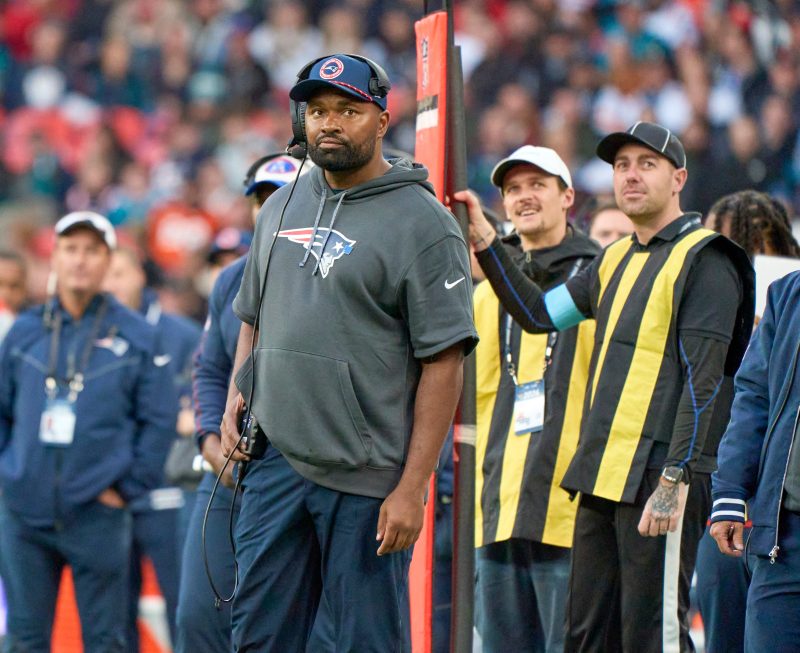The New England Patriots had an opportunity to make their Week 7 battle with the Jacksonville Jaguars a one-score game midway through the fourth quarter.
The Patriots were trailing the Jaguars by 15 points before rookie quarterback Drake Maye found veteran receiver K.J. Osborn for a 22-yard score. Many presumed New England would kick the extra point to cut Jacksonville’s lead to eight, but first-year head coach Jerod Mayo decided to go for two instead.
The decision didn’t pay off. Maye appeared to find Ja’Lynn Polk breaking open toward the pylon, but the receiver slipped to the ground and couldn’t make the grab. The pass fell harmlessly to the ground as a result and allowed the Jaguars to maintain a two-possession lead with 8:22 left in regulation.
Why did the Patriots go for two when down 15? Mayo explained the decision during his postgame news conference.
‘At some point in time, you have to go for two,’ Mayo noted while referencing the 15-point deficit. ‘I just wanted to at least know what situation we were gonna be in with more time on the clock. So we went for two on the first one.’
NFL STATS CENTRAL: The latest NFL scores, schedules, odds, stats and more.
Mayo’s decision comes amid a growing trend of NFL coaches attempting two-point conversions after scoring touchdowns when down 14. The logic is that a successful convert would give the trailing team a chance to win after another touchdown. Meanwhile, the trailing team would still be down just one score even with a failed conversion.
That calculus changes in a 15-point game. The decision to go for two comes with more risk, as a failure on the try makes it a two-possession game.
That outcome transpired in the Patriots-Jaguars game. The failure made it harder for the Patriots to come back from their 25-16 deficit in what ultimately ended up being a 32-16 loss.
But while the decision may have backfired, Mayo was still comfortable with his choice at the end of the day.
‘I’m sure other people see it a different way,’ Mayo said. ‘It’s just a philosophical thing.’

